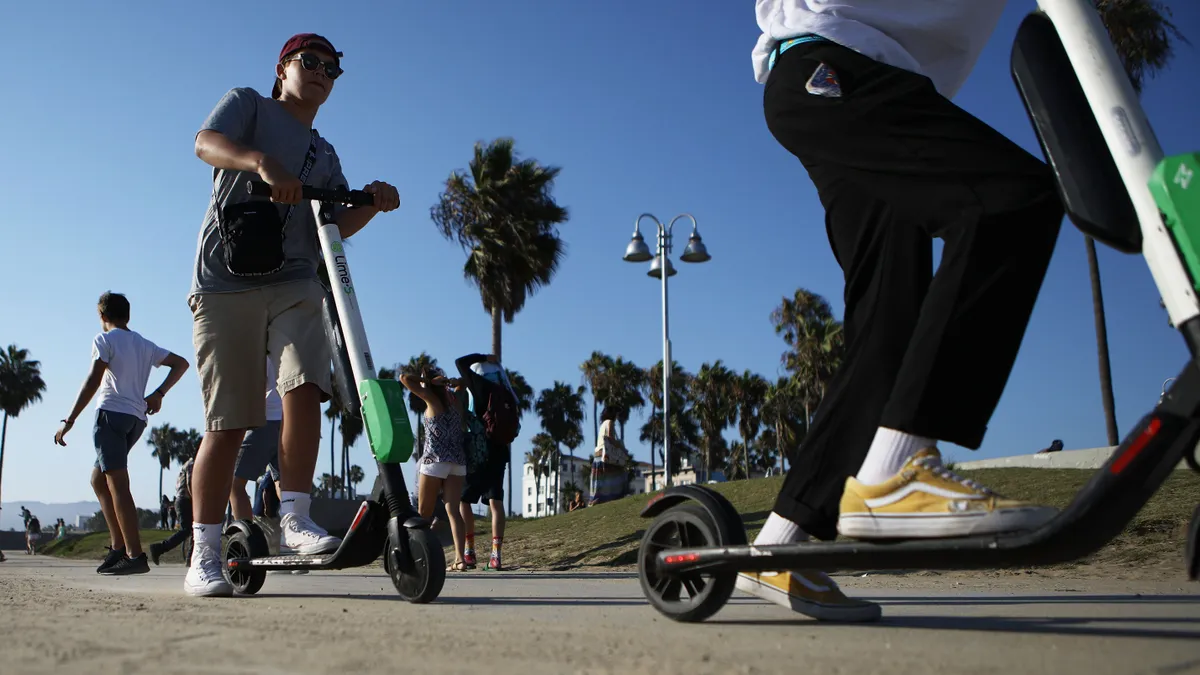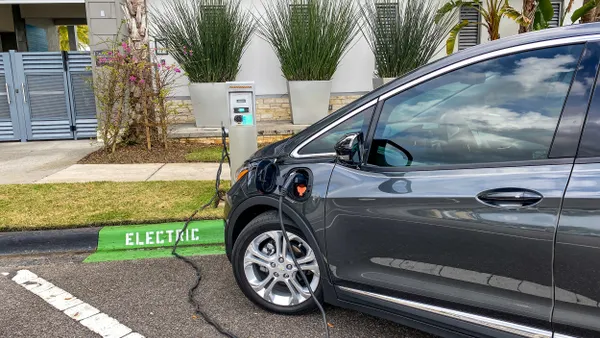Dive Brief:
- City taxes and fees on shared electric scooters and bikes are higher, on average, than those on most other transportation modes, according to a study released Thursday by Portland State University, Sonoma State University and micromobility provider Lime.
- Taxes and fees on dockless shared micromobility devices average 70 cents per mile, compared with 13 cents per mile for ride-hailing services and 3 cents per mile for private vehicles, according to the study.
- The study also found that fees in 2022 varied dramatically among cities, with Chicago’s fees the highest at $2.16 per mile annually, and Portland, Oregon, among the lowest, at 25 cents per mile.
Dive Insight:
Shared micromobility is a relatively young industry. The first bike-sharing system in the U.S. was Washington, D.C.’s Capital Bikeshare, which began in 2010. Bird launched the first electric scooter system in the U.S. in 2017, followed by Spin and Lime in 2018. Bird acquired Spin in 2023, and both are now operating under a new private parent company following Bird’s Chapter 11 bankruptcy in December.
The biggest obstacle for the micromobility industry “is, ironically, cities,” said Lime’s chief operating officer, Woody Hartman, in a January interview. “Sometimes the goals of a city unintentionally make the service less desirable and actually hurt the demand for this industry in the long term.”
The researchers surveyed city staff in 95 U.S. cities in 2023 and 2024. In setting program fees, administrative costs were a major or moderate consideration for 77% of survey respondents. Other considerations included influencing operator behavior, ensuring financial feasibility for shared scooter companies and enabling lower costs for riders, according to the survey.
“Though cities are using fees and taxes to mitigate the cost of program administration, which is very understandable given local budget constraints, these additional costs to riders can be at odds with a city’s broader goals for supporting sustainable and equitable transportation,” John MacArthur, the study’s lead author and sustainable transportation program manager at Portland State University’s Transportation Research and Education Center, said in an emailed statement.
“Our study found that on average, fees and taxes on shared micromobility were quite a bit higher than charges on personal driving or ride-hail trips,” Kevin Fang, study co-author and the director of Sonoma State University’s Center for Sustainable Communities, said in an emailed statement. “This seems counter to many cities’ goals of promoting alternative modes of travel.”
While the report did not make concrete recommendations on fee amounts due to insufficient data, it outlined principles for cities to follow when considering micromobility fees that include:
- Align transportation mode fees with policy goals, such as reducing roadway congestion and addressing climate concerns.
- Simplify fees and how they are collected to reduce bureaucratic costs for cities and allow micromobility companies to more easily forecast their costs.
- Recognize that sales taxes and program fees disproportionately affect low-income users in opposition to equity goals.
- Understand that program fees and sales taxes amount to double taxation on shared micromobility.
Chicago, which had the highest per-trip charge of any city in the world in 2022, decided to cut program fees this year, according to an emailed news release. “As cities revisit their program regulations, we hope they take into consideration that the industry has matured substantially since fees were initially established,” said Calvin Thigpen, research director at Lime and study co-author, in the email.












